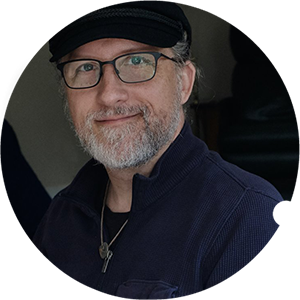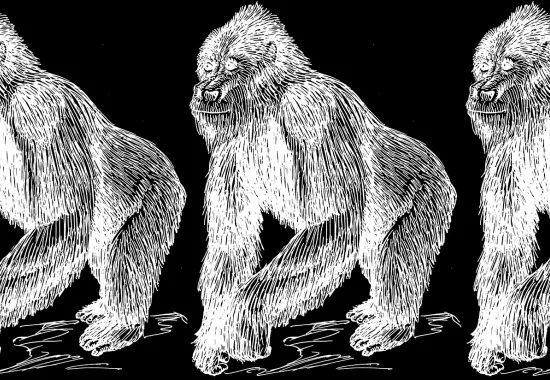Finding Your Good Food
“You do great food,” my mentor Jesse Lee Kercheval once said to me. This was years ago; she had just read one of my early short stories. And it was probably an off-the-cuff comment—possibly it was the only positive thing she could find to say about the story. But those words have stayed with me. Like a meal you don’t forget.
Now, I don’t know if you’ve ever had food, but, if not, you should try it. Because a lot of food is delicious. And not a little delicious but enormously delicious. Like happiness turned into a solid. (Or sometimes a liquid, if you count soup.) Actually, there’s so much good stuff to eat out there that it can be hard to appreciate what you’re eating at any one moment because you might start thinking about all the other amazing stuff you could be eating instead.
Or maybe that’s just me. Or at least my family of origin. In my poem “Basket and Kneading-Trough,” I say that “at lunch we ask what’s going to be for dinner”—because, ever since I was a child, my family has really done that. We sit there with our forks in hand, simultaneously satisfied and impossible to satisfy, and we dig into the meal and we also check in to make sure there are plans for the next meal. Not to mention snacks in between. You have to have your bases covered.
(My father recently texted me after reading that poem for the first time. He wrote, That one hits home.)
Yeah—my family thinks about food the way some people think about birthdays or Hanukkah. Oh my G-d, oh my G-d, is it coming? Is it almost here? Not to mention Is it leaving us? (I remember once talking to my niece on the phone during Hanukkah and asking her how she was enjoying the holiday, and she said, glumly, “I’m sad that it’s going to end.” This was the second night of Hanukkah. Out of eight nights. And that’s how we are about food.)
So, because it’s a preoccupation, food has always shown up in my writing. At first, though, it came in mostly on the edges, like in short stories where many of the scenes were set around my characters eating. The focus wasn’t food—ostensibly the people in the stories were dealing with other issues and situations—but they sure did also do a lot of eating. (I once gave a reading where an astute audience member said, “Do you think your characters are always consuming stuff because they’re trying to fill an emptiness inside?” Naturally, I had that person escorted out by security.)
Then at some point I decided that I was going to put food at the center, at least some of the time. Because if there’s a message in all this, it’s that writers should honor and work from their obsessions. What better material do we have than the stuff we can’t stop thinking about? And so in my second collection of poetry, Some Unimaginable Animal, I talk about bread, burritos, and carrot cake; big, ice-cold bowls of cereal; a romantic meal of black beans, spinach, and garlic. I explore gluttony and fasting and real starvation. There’s a poem about “Some people, you go to their house for dinner/and there’s no dinner, there’s cooking.” There’s one about braggadocious versus humble restaurants (“Sometimes what I want is a sticky bun that’s world famous/according to the restaurant’s owner in small-town Pennsylvania….Other times I want a diner that shrugs and calls itself/A Place for Ribs”). There’s even a poem that suggests that Adam and Eve might have left the tree of knowledge alone if Eden had had a good corner convenience store.
The fact that the food fixation gets religious doesn’t surprise me. First of all, I’m Jewish, and food plays an outsize role in the Jewish experience. (The book includes a poem called “While They Choose a New Pope, I Eat a Bagel.”) But also I think there’s something inherently religious about an obsession. There’s devotion there, and reverence.
There’s also an awareness of danger—passions often lead us into serious trouble. And, in the words of writer Janet Burroway, “In literature, only trouble is interesting.” I’m not sure I agree with the “only” there—but trouble is definitely one of the most interesting things.
And so even if your obsession is something completely everyday and ordinary, it gets intensified and maybe even elevated by your preoccupation. And I think it therefore deserves to show up on the page—trembling with all your excitement, glowing with your adoration.
“The Ineffable,” one of the last poems in my book, begins “Maybe we should just stick to food.” Which is advice I’m probably going to take, at least some of the time. I’m going to write my way into it. As for everyone else, all the rest of you, the question is What’s your food? In other words, what can’t you stop thinking about? And are you writing it down?
Recommended
Schizophrenic Sedona
Recense (realized)
Notes on Hands






